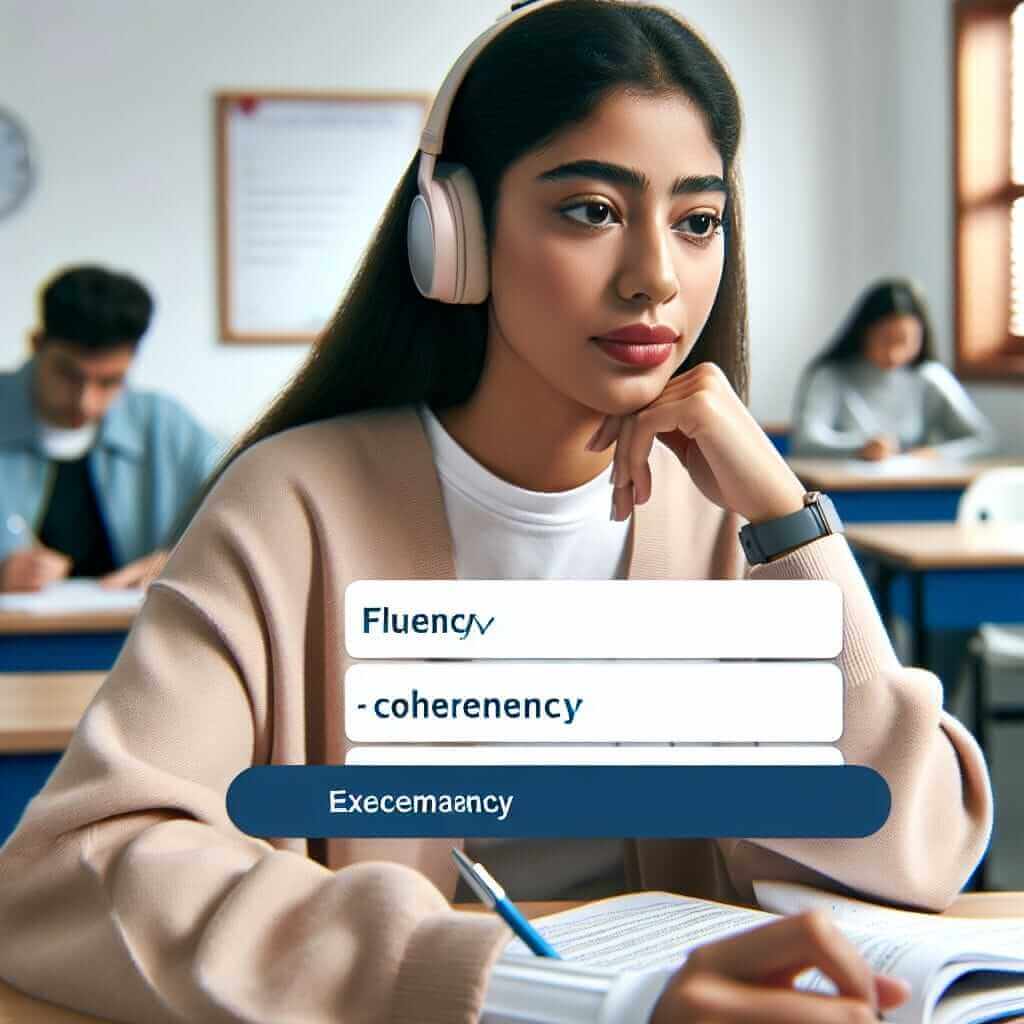The IELTS Speaking test is designed to evaluate your spoken English proficiency. It consists of three parts: Part 1 (Introduction and Interview), Part 2 (Long Turn), and Part 3 (Two-way Discussion). To achieve a high score, it’s vital to demonstrate fluency and coherence, lexical resource, grammatical range and accuracy, and pronunciation.
One common topic that can appear in Part 2 is “Describe a time when you were very resourceful.” This topic is frequently chosen because it tests your ability to narrate an experience and reflect on the skills you used to overcome challenges.
II. Main Content
1. Part 1: Introduction and Interview
In Part 1, the examiner will ask general questions about yourself and a range of familiar topics, such as your home, family, work, studies, and interests. Here are a few examples of typical Part 1 questions:
- What do you do in your leisure time?
- Do you prefer reading or watching TV?
- Can you describe your hometown?
Example question: “Do you prefer reading books or watching TV?”
Sample Answer:
“Personally, I prefer reading books because it allows me to explore different worlds and ideas. Unlike watching TV, which is more passive, reading engages my imagination and often provides a deeper understanding of topics.”
2. Part 2: Long Turn
In Part 2, you will be given a cue card with a topic and some prompts. You will have one minute to prepare and will need to speak for one to two minutes.
Cue Card:
Describe a time when you were very resourceful. You should say:
- What the situation was
- Why you needed to be resourceful
- What you did
- And explain how you felt after that
Sample Answer:
“One time I was incredibly resourceful was during a group project at university. We had a strict deadline, and a team member had an emergency and couldn’t contribute. Faced with this challenge, I knew I had to step up and manage the remaining tasks.
Firstly, I allocated the most critical parts of the project to myself and the other team members based on our strengths. I also reached out to our professor to explain the situation and asked for an extension, which was granted for a day. Furthermore, I utilized online resources and tools such as collaborative platforms and academic databases to streamline our work and ensure we didn’t waste any time.
In the end, we completed the project just in time and received positive feedback. This experience taught me that being resourceful involves not just problem-solving and time management, but also being proactive and seeking help when necessary. I felt a sense of accomplishment and pride in our teamwork and resourcefulness.”
3. Part 3: Two-way Discussion
In Part 3, the examiner will ask further questions related to the topic in Part 2, but these questions will be more abstract and analytical.
Examiner’s Question:
“Why do you think resourcefulness is an important skill in the workplace?”
Sample Answer:
“Resourcefulness is crucial in the workplace because it enables employees to adapt to unexpected challenges and find innovative solutions. For example, a resourceful person can quickly identify when a project is going off track and devise a plan to bring it back within the timeline and budget. Additionally, resourceful employees often boost team morale by demonstrating a positive and proactive approach to problem-solving, which can be incredibly motivating for their colleagues.”
Examiner’s Question:
“Can you think of any professions where being resourceful is particularly important?”
Sample Answer:
“Absolutely, resourcefulness is particularly essential in professions like healthcare, where medical practitioners frequently encounter unforeseen situations and must act quickly while managing limited resources. Another example is the field of project management, where managers must continuously balance constraints like time, budget, and scope while ensuring the project succeeds. In both these professions, resourcefulness can significantly impact the outcomes and effectiveness of the work.”
III. Essential Vocabulary and Structures
Using a varied and rich vocabulary can greatly enhance your speaking score. Below are some important words and phrases:
-
Resourceful (adj.) /rɪˈsɔː.sfəl/ – Able to solve problems and make decisions efficiently.
- “In today’s competitive market, being resourceful is a key asset.”
-
Proactive (adj.) /ˌproʊˈæk.tɪv/ – Taking action by causing change and not only reacting to change when it happens.
- “Proactive employees are valued for their initiative and forward-thinking.”
-
Problem-solving (n.) /ˈprɒb.ləmˌsɒlvɪŋ/ – The process of finding solutions to difficult or complex issues.
- “Effective problem-solving often requires creative thinking.”
-
Collaborative platforms (n.) – Digital tools that facilitate collaboration and communication among team members.
- “We used several collaborative platforms to coordinate our work seamlessly.”
-
Innovation (n.) /ˌɪn.əˈveɪ.ʃən/ – The act of introducing something new or different.
- “Technological innovation drives many industries forward.”
IV. Examiner’s Tips
- Practice Fluent Speaking: Try to speak naturally and smoothly without too many pauses or hesitations.
- Expand Your Vocabulary: Use a range of vocabulary to express your ideas more precisely and clearly.
- Work on Pronunciation: Make sure your pronunciation is clear so the examiner can understand you easily.
- Be Detailed and Relevant: When answering, provide specific examples and stay on topic.
- Time Management: Practice speaking for 1-2 minutes without repeating yourself too much.
By adhering to these strategies and preparing effectively, you will significantly enhance your chances of achieving a high score in the IELTS Speaking test.

For more insights on IELTS Speaking topics, visit describe a time when you were very brave or describe a time when you got lost.
By following the above steps and practicing diligently, you can achieve a higher score and improve your IELTS Speaking performance. Good luck!